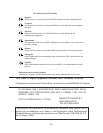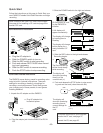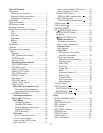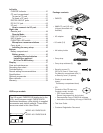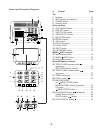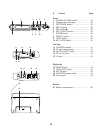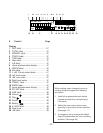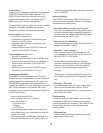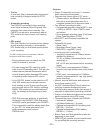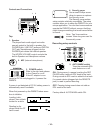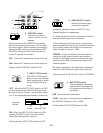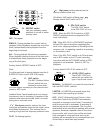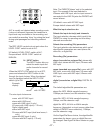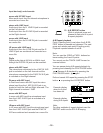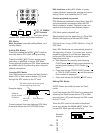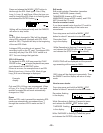- 13 -
• Tracks
A new track (file) is automatically started each
time recording is stopped using the STOP
button.
• Automatic recording
The PMD670 can be set to stop recording
when there is silence (Silent Skip) and auto-
matically start when sound resumes. The
PMD670 can be set to automatically add an
EDL mark to the track at each such starting
point.
• EDL marks*
EDL (Edit Decision List) marks can be created
during recording manually or automatically.
EDL marks help you find those specific points
in the recording.
*The EDL marking system is proprietary to Marantz
Professional solid state recorders.
• During playback you can search for EDL
marks in forward or reverse.
• You can change an EDL mark into a skip
mark or an A-B repeating point. That lets you
create custom playback sequences which
include skipping audio between EDL marks
or repeating audio between EDL marks.
• Up to 255 EDL marks can be added to a CF
card. EDL marks are numbered consecu-
tively starting at one. During recording you
can manually add an EDL mark by pressing
MARK. EDL marks can be added automati-
cally, for example at the beginning of each
track.
• PMD Edit computer software, is specifically
designed for the PMD670. PMD Edit recog-
nizes EDL marks generated by the PMD670.
This is especially useful for editing audio files
on your PC. For more information visit
www.marantzpro.com/Products/
PMDEdit.html.
Features
• Stereo (2 channels) and mono (1 channel)
audio recording and playback.
• Records onto various types of CF cards.
(Please refer to the Marantz Professional
web site at www.marantzpro.com for a
complete updated list of approved cards.)
• Two different recording formats.
• Compressed recording using MPEG1 Layer
II (MP2) or MPEG1 Layer III (MP3) mono
and stereo.
• Uncompressed recording using 16-bit linear
Pulse Code Modulation (PCM).
• MS-DOS™ and Windows compatible file
system.
• Selectable file types:
• Wave (.wav)
• Broadcast Wave Format (.bwf)
• RAW MP2 (.mpg)/MP3 (.mp3).
• recording bit rate is selectable
• .mpg/mp3 compressed at 32kbps (recom-
mended for dictation),
32, 48, or 64kbps (recommended for voice
recording), or
128, or 192 kbs (recommended for recording
music)
• PCM (.wav) uncompressed at 768kbps
(mono) (very high quality mono audio record-
ing)
• PCM (.wav) uncompressed at 1536kbps
(stereo) (recommended for very high quality
audio recording)
• Manual, manual with limiter and automatic
record level control (ALC).
• An ANC (Ambient Noise Cancel) switch for
reducing unwanted background noise.
• Pre-Recording memory buffer that records 2
seconds of audio before recording is started.
• Portions of multiple recordings can be played
back in sequence using EDL marks.
• There are four ways to power the PMD670:
• Included AC adapter
• AA Alkaline batteries (~ 6 hours)
• Optional rechargeable Ni-Cd battery pack
RB1100 (~ 5 hours).
• Optional rechargeable Ni-MH battery
RB1650 (~ 7 hours).
• Built-in Time and Date generator marks the
beginning of each track.
• REMOTE jack permits a wired remote button
for controlling the recording process.



